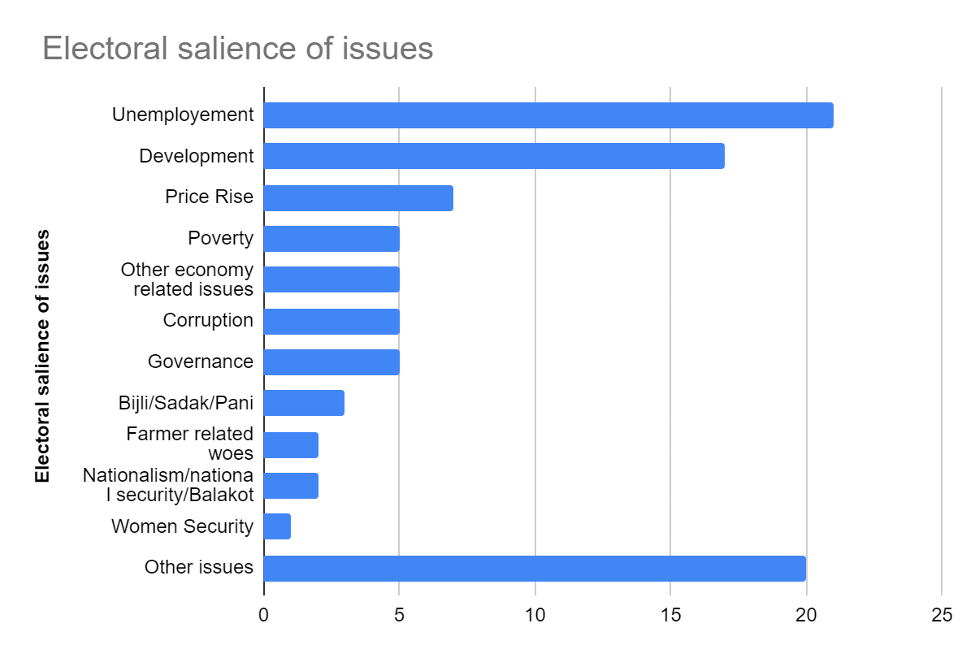12 November 2025, NIICE Commentary 11923
Sidhant Kumar
Political parties in Bihar, India, have concluded their campaigning, marking the end of the last phase of the Bihar elections. Results will be announced on 14th November, which will shape the fate of Bihar. In these elections, foreign issues have increasingly become a focus of political leaders’ campaigns, particularly for the Bharatiya Janata Party (BJP).
The Bihar elections took place just after Operation Sindoor. In a rally in Arah, Bihar, Prime Minister Narendra Modi bellowed that “Today, India hunts down terrorists in their homes and hideouts. Recently, we conducted Operation Sindoor. Shouldn’t every Indian feel proud of our brave soldiers? However, despite the armed forces’ success, Congress and the Rashtriya Janata Dal (RJD) appear unhappy about it. The strikes by armed forces have given sleepless nights to the Congress royal family”.
PM Modi, along with Union Home Minister Amit Shah, has unfailingly invoked Operation Sindoor in election rallies in Bihar to reap electoral gains. Posters of Operation Sindoor featuring Rafale fighter jets also appeared on chowks and roundabouts in Patna, Bihar, at the beginning of the elections.
Another foreign security issue invoked is the “infiltrator” narrative run by the BJP, as the Special Intensive Revision (an exercise to clean the voter rolls) conducted by the Election Commission of India (ECI) concluded in Bihar. The ECI claimed that there is a considerable number of foreigners, mainly from Bangladesh, Nepal and Myanmar. The BJP leaders were quick to exploit this. PM Modi said that the Congress and RJD are protecting the “infiltrators”. In the run-up to the elections, Union Home Minister Amit Shah, in a rally, told his supporters, “Should the names of Bangladeshi infiltrators remain in Bihar’s electoral rolls? Lalu Yadav, Rahul Gandhi are protectors of infiltrators. The BJP government will not allow any infiltrators in Bihar”.
Behind the BJP’s “infiltrator” narrative is the deep-seated anxiety of people towards foreigners that they will take away jobs and the constrained resources of Bihar. Anyhow, people in Bihar told me that there are not enough jobs in Bihar that would attract foreigners, unmasking the vacuity of the BJP’s infiltrator trope. Most importantly, the ECI, in its final roll after settling objections, found 9,500 people ineligible, or 0.012% of the total voters, who, according to the ECI’s claim, could be foreigners. It turns out that most of these deletions involved Nepali women who married in the border districts of Bihar.
The desperation of the BJP is understandable, as Bihar is the only unconquered fortress in the Hindi-speaking belt that has never sent a BJP face to office. BJP generally enjoys considerable support among the upper castes, but it has not necessarily translated into a people’s mandate in Bihar. However, several factors must work together for foreign security issues to have an impact on the electorate. Two factors are essential here: the salience of the foreign security issue among the voters and the exposure of the voters to the foreign security crisis.
Firstly, undergirding the salience argument is the extent to which voters are aware of, attentive to, and concerned about foreign and security policies, as well as the responsiveness of leaders to those concerns. If the electorate cares little about foreign affairs issues, politicians have weak electoral incentives to devote attention to these issues.
Salience for Pakistan cross-border terrorism and anxiety to foreign religious groups, including Muslim minorities, is high in the Indian context. The salience of foreign security issues regarding Pakistan has increased with the Balakot operations in 2019, which were carried out just months before the 2019 general elections by the BJP-led incumbent government. The pre-poll 2019 survey by the Centre for the Study of Developing Societies (CSDS) of a random sample of 10,000 people shows that Balakot Airstrikes were among the electoral issues in the 2019 general elections (see Picture 1).

Percentage of respondents
Picture 1: Salience of issues in 2019 general elections, including Balakot Airstrikes, Source: Lokniti CSDS 2019.
Although every PM of India has invoked foreign security issues with an eye on the electorate, this is not germane to the BJP. But it is received wisdom that voters flock to right-wing, nationalist parties after a terrorist attack.
Secondly, exposure of voters to the crisis for “whom the losses from an attack are large and concrete”. But this, exposure varies, as the electorate is influenced by those “who are most exposed and for whom the consequences of a crisis do not loom as large”. Furthermore, the socialisation of the electorate in foreign security issues might lead to the “rallying effect” on the voting base. Exposure to a crisis could amplify rallying behaviour by diverting attention away from quotidian economic and governance concerns and toward an international adversary.
Traditionally, foreign issues in India have generally been a concern of an urbane elite class based in New Delhi and other metro cities. BJP, however, has been successful in socialising the rural voters as well during elections for electoral gains, as was evident during the Balakot episode, and the CSDS 2019 pre-poll survey corroborates this.
Exposure can sometimes backfire if leaders are not responsive to the insecure situation, potentially generating anti-incumbency. Leaders are required to act during foreign security crisis periods, and failure to do so would harm the incumbent government. Take, for instance, the case of Sri Lanka’s civil war, when Tamil Nadu political leaders defected from the coalition led by the United Progressive Alliance-II, which supported the Sri Lankan government and army. Villages of slain soldiers of the Pulwama attacks in Jammu and Kashmir also showed anti-incumbency against the BJP in the general elections of 2019. For the villagers, the mounting cost of lives lost to the terrorist attacks in Pulwama trumped nationalistic passion.
The Bihar elections also come at a time for PM Modi when the international situation has not been favourable for India. Trump has been hostile towards India, and the US’s 50% tariffs are threatening to rupture India’s economy and livelihoods. The tariffs pressured India to decrease its import of Russian oil recently. Trump also sided with Pakistan in the backdrop of the India-Pakistan confrontation in May this year.
On the world stage, India’s foreign policy is at an all-time low. India has been absent in international forums, including the ASEAN summit, which PM Modi did not attend on the pretext of Diwali celebrations. PM Modi also skipped the Gaza peace Summit in Sharm el-Sheikh, which was attended by almost every other world leader.
If the BJP thinks that success in foreign security issues has come to be an electoral instrument, then failure on this front should also have led to a backlash against the party and its leaders. This has not been the case. The abysmal performance of India in the international sphere has not reached the general public. The foreign security issues regarding the US and India’s international engagement do not have a domestic audience, particularly in the state of Bihar. Revealing PM Modi’s failure in the global sphere to the domestic audience is not on the opposition parties’ electoral agenda either. Congress, which has almost disappeared from Bihar, is concerned about rebuilding the party from the ruins.
In addition, Bihar’s polity is starkly different from that of the other Hindi-speaking belt, where the BJP has been able to form a government on the pretext of foreign security issues. Bihar has a deep-seated social justice and caste discourse that is built on the political representation and recognition of backwards classes, embodied by Karpoori Thakur, Lalu Yadav, Nitish Kumar, Mukesh Sahni, Chirag Paswan’s father, Ram Vilas Paswan, and Jitan Ram Manjhi. Added to this are the issues of unemployment and Bihar’s stagnant development scenario.
Yet, the BJP could shore up its vote base as Pakistan-related security issues have a high salience in Bihar and India broadly. Operation Sindoor and the “infiltrator” narrative might play out in areas including Seemanchal, which has a considerable Muslim population, and the BJP has been muscling its way through foreign security issues in the elections.
Sidhant Kumar is a Visiting Fellow at NIICE and a PhD Candidate at Jawaharlal Nehru University, New Delhi, India.

